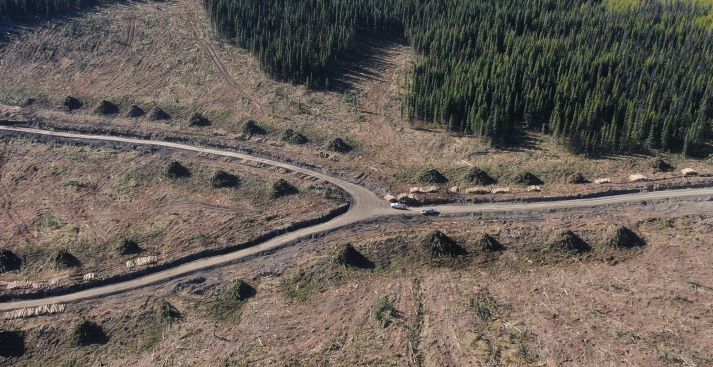CHETWYND, B.C.: a forest enhancement project to utilize wood waste in Northeast B.C. is wrapping up, but the social, economic, and environmental benefits will endure for the community of Chetwynd and many members of the McLeod Lake Indian Band. The Forest Enhancement Society of BC (FESBC) provided $299,759 in funding to a partnership project led by Duz Cho Logging of the McLeod Lake Indian Band and Canfor Energy North.
“FESBC was allocated $3 million from the provincial government as a part of its StrongerBC For Everyone: B.C.’s Economic Recovery Plan to deploy to projects that would increase the utilization of wood fibre throughout the province,” said Ray Raatz, RPF, Operations Manager, FESBC. “The submission from Duz Cho Logging and Canfor Energy North was well thought out and we collectively could envision how it might be a catalyst for more of this kind of work in the Northeast region of B.C.”
The project resulted in the utilization of low-grade residual wood fibre left over from harvesting operations in the Chetwynd area. The current economics for recovery of this fibre is limiting. Funding from FESBC extends the economic reach by enabling recovery and utilization of the low-grade fibre from areas a greater distance from the facility using the fibre. Typically, without funding like this from FESBC, leftover wood fibre is piled and burned, but in this case the residual fibre was hauled to the Canfor Energy North Pellet plant in Chetwynd where it was chipped and used for pellet and energy production.
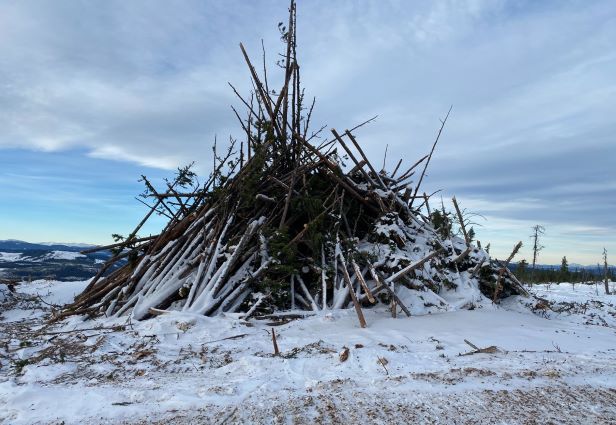
Piles with no residual bio log sort 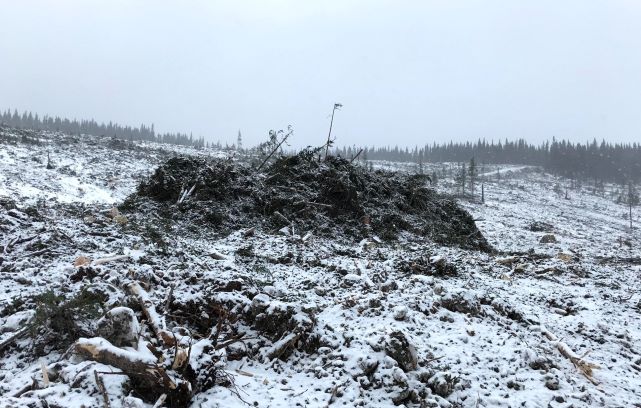
Top Piles with Residual Biologs removed from bush and delivered to Chetwynd
“We were very pleased with the opportunity to help take the lead in this project,” said Chris Hayward, Logging Manager, Duz Cho Logging. “One of our core principles at Duz Cho is we ensure the footprints we leave behind are the ones our children will be proud to walk in, and this project was definitely in alignment. The environmental benefits were significant because by avoiding pile burning, the result is fewer greenhouse gas emissions. The economic benefits were also significant in that we were able to provide employment for McLeod Lake Indian Band members. Not only are these good paying jobs to benefit our members and their families, but people have the opportunity to learn new skills while doing this hands-on work which is important.”
Don Rosen of Canfor Energy North agrees.
“This was an important project for many reasons, including the economic and environmental benefits Chris referred to,” said Rosen. “Not only was it an exceptional partnership with McLeod Lake Indian Band’s Duz Cho Logging Partnership, but the FESBC funding was the impetus for our company to do more of this work as this was our first residuals utilization project in the bush. The project helped to expand our capacity for what we can do as a company in the future to better utilize fibre from our operations and create additional revenue streams for our partners like Duz Cho. We also know there are downstream benefits of these projects for logging contractors and haulers/truckers. We look forward to doing more!”
The project helped to expand our capacity for what we can do as a company in the future to better utilize fibre from our operations and create additional revenue streams for our partners like Duz Cho.
Don Rosen, Canfor Energy North
In total, the project utilized 14,742 cubic metres of residual waste fibre, equivalent to 295 truckloads. Duz Cho Logging and Canfor Energy North employees were able to contribute to the Chetwynd economy through fuel, accommodation, and food purchases, as well as hiring local tradespeople to provide maintenance on equipment.

“This project was a great opportunity for members of the McLeod Lake Indian Band to participate in a project that helps utilize more of the wood fibre being harvested within the traditional territories. We are creating a greener, more sustainable environment.”
Chris Hayward, Logging Manager, Duz Cho Logging
As a part of the StrongerBC funding allocation, FESBC provided funding to 14 fibre utilization projects, including the Duz Cho/Canfor Energy project, in many parts of the province.
“Our project showed true partnership,” said Hayward. “So much happened behind the scenes in the planning and implementation and from start to finish it was truly a collaboration – a project in support of each other for the benefit of many.”
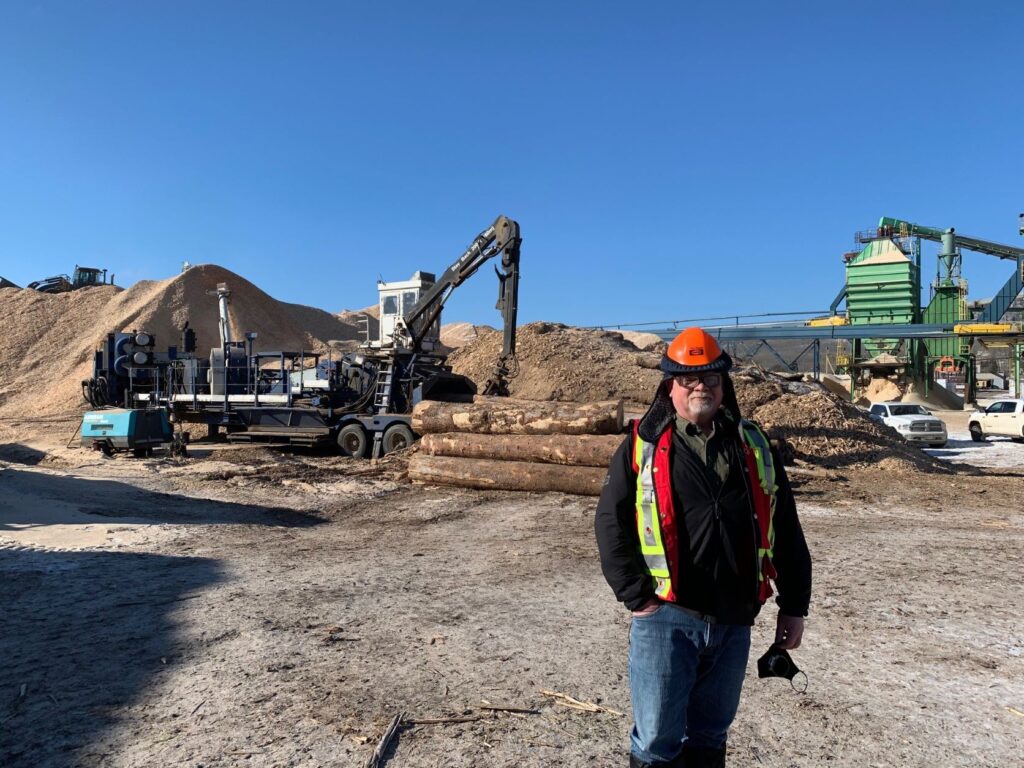
Don Rosen of Canfor Energy North in front of Duz Cho Chipper – R. Raatz Photo 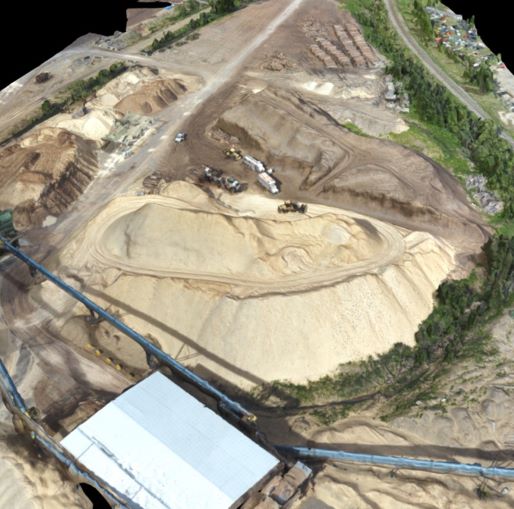
Chip pile and few remaining logs at top of photo a few days prior to completion of the project – D. Rosen Photo
For information or an interview regarding this project, contact:
Aleece Laird, Communications Liaison | communications@fesbc.ca | 250.574.0221
Project Partners




